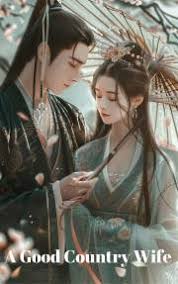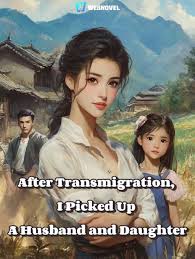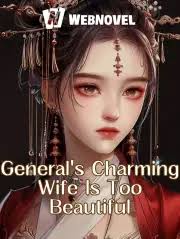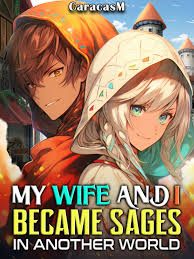The Story in 3 Sentences
Lin Yue awakens in an ancient rural world, transmigrated into the body of a young woman sold as a replacement wife to Zhao Erhu, a widower over a decade her senior with four children from previous marriages.
She confronts overwhelming domestic pressure and societal constraints, yet gradually transforms her fate through farming innovations, glassmaking ventures, and quiet resilience.
Her journey evolves from survival to quiet influence, navigating droughts, bandit threats, and imperial recognition, though many plot threads end abruptly in a rushed conclusion.
Why It Stands Out
1. From Burden to Backbone
Lin Yue’s arc rejects passive victimhood; instead of waiting for rescue, she builds greenhouses, designs waterwheels, and turns household scraps into profitable crafts. Her agency emerges not through rebellion but through relentless pragmatism—feeding children, mending roofs, and bartering soap for seeds. This grounded approach to transmigration fantasy makes her triumphs feel earned, not magical.
2. The Weight of Stepchildren
Unlike many reincarnation stories that sideline family dynamics, this novel centers the emotional labor of becoming a mother to strangers. The four children—unnamed but vividly rendered—anchor Lin Yue’s choices. Their hopeful eyes aren’t just decorative; they’re the moral compass that steers her away from despair and toward daily acts of care, making the domestic sphere the true battlefield.
3. Rural Ingenuity Over Court Drama
While many xianxia or historical transmigration tales rush to the palace, this story stays rooted in the soil. Lin Yue’s innovations—glass production, drought-resistant crops, cooperative farming—unfold in muddy fields and smoky kitchens. The emperor’s eventual notice feels like an afterthought, not the goal, preserving the novel’s commitment to humble, human-scale progress.
Characters That Leave a Mark
There’s Zhao Erhu – the stoic widower whose quiet competence in carpentry and hunting masks deep grief, yet whose “grooming” attitude toward his much younger wife unsettles modern readers despite period context.
You’ll meet the eldest stepson, whose near-peer age to Lin Yue creates unspoken tension, embodying the blurred lines between child, rival, and reluctant ally in the household’s fragile hierarchy.
And the youngest child? They’re the one who clings to Lin Yue’s sleeve during storms, their silent trust becoming the emotional barometer of her acceptance into the family.
The Flaws Fans Debate
Readers consistently criticize the uncomfortable age gap between Lin Yue and Zhao Erhu, with multiple reviews noting she initially mistakes him for her father, triggering “Law & Order: SVU” comparisons.
The ending is widely panned as rushed, abandoning key developments like glassmaking enterprises, bandit reformation, and imperial appointments without resolution.
Frequent name inconsistencies—characters swapping identities mid-story—break immersion and confuse even dedicated readers, as noted in multiple Webnovel reviews.
Must-Experience Arcs
Ch. 1–50: The Replacement Wife – Lin Yue adjusts to her new reality, bonding with four stepchildren while managing Zhao Erhu’s wary affection and her own disorientation in a world without modern comforts.
Ch. 200–300: Glass and Grain – She pioneers small-scale glass production and drought-resistant farming, turning the household into a local hub of innovation amid regional crop failures.
Ch. 600–710: The Hollow Triumph – Imperial recognition arrives, but narrative threads involving bandit alliances, court politics, and business expansion dissolve into a perfunctory finale that leaves fans frustrated.
Killer Quotes
“Before her stood one, two, three, four children, like a line of burdens, all gazing at her with blurry and hopeful eyes.”
“Brother Erhu, you know carpentry too? That’s incredible.”
“Human nature was unpredictable.”
Cultural Impact
Fans flooded Webnovel comment sections demanding expanded endings, with pleas like “Please update more!!!” and “Not worth the money spent” reflecting deep investment and disappointment.
The novel sparked debates about historical accuracy versus modern ethics, especially regarding marital age norms in ancient settings.
Despite flaws, it gained traction in transmigration circles for its focus on agriculture and family over harem tropes, earning tags like #farming #family #sweetlove.
Final Verdict
Start Here If You Want:
A grounded transmigration story where survival hinges on soap recipes and seed selection, not swordplay or scheming.
A maternal journey that treats stepchildren as emotional core, not plot devices.
Quiet worldbuilding where progress is measured in harvests, not thrones.
Study If You Love:
Narratives that subvert the “chosen one” trope by centering domestic labor as revolutionary.
Historical fiction that interrogates gender roles through daily practice rather than grand speeches.
The tension between period authenticity and contemporary reader ethics in webnovel storytelling.
Avoid If You Prefer:
Clear character naming and consistent continuity—name errors and dropped arcs abound.
Romantic leads with minimal age disparity or grooming undertones.
Satisfying closure; the ending abandons major subplots mid-stride, leaving key promises unfulfilled.





